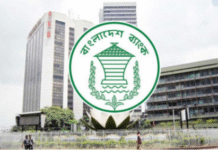Experts and rights activists on Sunday stressed comprehensive enumeration and identification of the little known ethnic minorities in tea gardens of the country to address the problems of their non-recognition and exclusion.
Addressing a seminar, titled ‘Mapping and Capacity Building of Tea Plantation Workers and Little Known Ethnic Communities of Bangladesh’, they also observed that the existing labour law is not helping the tea workers as it has discriminatory provisions towards them.
The seminar was organised by Society for Environment an Human Development (SEHD) at CBCB Centre in city’s Mohammadpur.
Bangladesh Tea Workers’ Union advisor Tapan Datta and Solidarity Centre senior legal counselor AKM Nasim, Dhaka University assistant professor Tanzimuddin Khan and Jahangirnagar University assistant professor Mahmudul Hasan Sumon, among others, addressed the seminar, moderated by SEHD director Philip Gain.
Speaking at the seminr, Philip Gain said the tea workers and their little known communities are least attended within and outside the country.
“I can name about fifty communities such as Bagti, Bashfor, Been, Ganju, Kora, Konda, Mushor, Noonia, Bhuimali, Ho, Kurmi and Lohar who are not recognised by law and the constitution of our country,” he said.
Only twenty seven of the ethnic communities living in Bangladesh have been enlisted in the Small Ethnics Cultural Institutions Act 2010, he added.
Philip Gain also noted that the ethnic minorities in tea gardens live in extreme vulnerable condition as they have no land rights.
“Tea workers and their communities are descendents of indentured labour force and are tied to the tea gardens and the labour lines,” he said.
The SEHD director mentioned that the wages the tea workers get is very low. “Even three years back their daily cash pay was only Tk 32.50, which is now Tk 69,” he said, adding that in comparison, the daily cash pay in Sri Lanka is Rs 550.
Solidarity Centre senior legal counselor AKM Nasim noted that the country’s labour law still retains some discriminatory provisions for the tea garden workers that were introduced during the colonial days.
Tea workers get lesser earned leaves and gratuity compared to the workers in other sectors, he said.
Bangladesh Tea Workers’ Union advisor Tapan Datta said the law bars the tea workers from forming unions regionally, although the tea plantations in the country has now spread in three regions – Sylhet, Chittagong and Panchagarh.
Source: UNBConnect











To destroy the Muslim demography of Bangladesh (Specially Sylhet) colonial British implanted those untouchable Horijon (COOLIES) from Bihar & Orissa during the late 19th & early 20th century though there was no shortage of native (MUSLIM) tea garden workers.As they did implanted the Chakmas, Khashis, Monipuris & other 37 tribal people including the SHAWTALS from Burma, Seven sisters, West Bengal, Khashiland, Garoland. . Some poorly educated Bangladeshis named then as AADIBASHI. (Aborogines) They are not AADIBASHI, but implanted foreigners. Those half educated Bengalis have no knowledge of history, anthropology of etymology of these people. They are dancing on Foreign NGOs tune. British has a responsibility to take them back to their original home as they have done to the Jews.
Bangladeshi tea garden coolies are not AADIBASHI (Aborigines). Colonial British should take them back where from they implanted them to Muslim Banglasdesh & Muslim Sylhet to destroy our Muslim demography and create lasting FITNA
To destroy the Muslim demography of Bangladesh (Specially Sylhet) colonial British implanted those untouchable Horijon (COOLIES) from Bihar & Orissa during the late 19th & early 20th century though there was no shortage of native (MUSLIM) tea garden workers. As they did implanted the Chakmas, Khashis, Monipuris & other 37 tribal people including the SHAWTALS from Burma, Seven sisters, West Bengal, Khashiland, Garoland. Some poorly educated Bangladeshis named then as AADIBASHI. (Aborigines). They are not AADIBASHI, but implanted foreigners. Those half educated Bengalis have no knowledge of history, anthropology of etymology of these people. They are dancing on Foreign NGOs tune. British has a responsibility to take them back to their original home as they have done to the Jews.